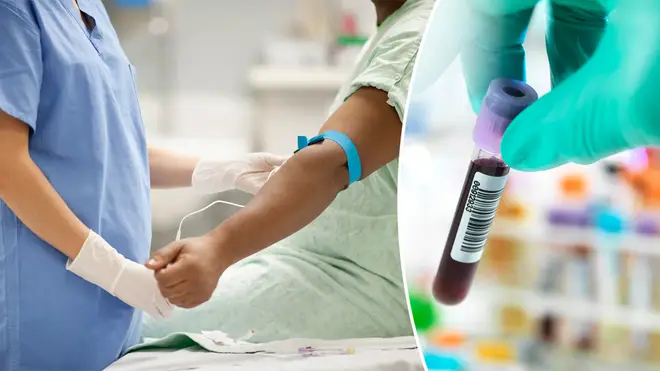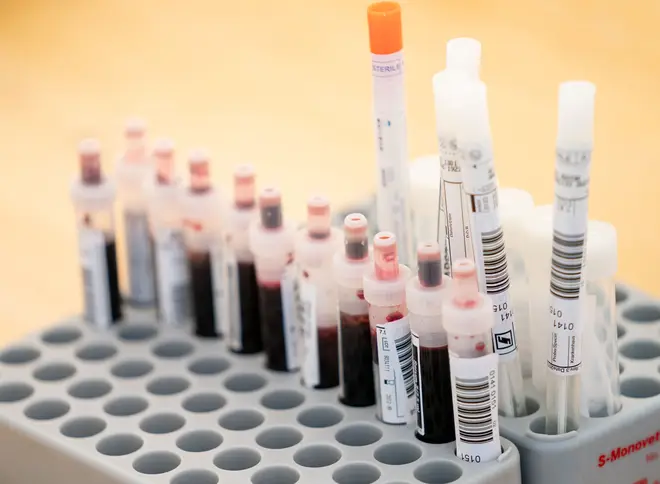On Air Now
Heart Breakfast with JK and Amanda Holden 6:30am - 10am
1 April 2020, 10:35

Scientists have claimed that a simple blood test can check for more than 50 types of cancer, often before any signs or symptoms.
A new study has revealed that a blood test managed to detect over 50 different types of cancer in thousands of participants, as well as locating the position in the body.
Published in Annals of Oncology, the results showed more than 99% of positive results were accurate, but more studies are needed to check it does not miss cases and provide false assurance.
Data also suggests the test is better at detecting more advanced cancers, but experts are hoping this breakthrough could help diagnose tumours sooner when they are easier to treat.

The study, funded by GRAIL, Inc. in California, collected samples from 4000 people representing more than 50 cancer types, including breast, bladder, ovarian, lung, lymphoid leukemia, and pancreatic cancer.
Read More: Mum issues warning to parents as she shares baby son's coronavirus symptoms
The test accurately detected the type of cancer in 96% of the samples.
Lead researchers, Prof Geoff Oxnard, said: "This blood test seems to have all the features needed to be used on a population scale, as a multi-cancer screening test.
"Everyone asks when will a test like this will be ready for use.
"Based upon this successful clinical validation in thousands of patients, the test has actually now been launched for limited use on clinical trials.
"But before this blood test is used routinely, we will probably need to see results from clinical studies like this to more fully understand the test performance.

"We will do whatever it takes to support jobs, incomes and businesses." Chancellor Rishi Sunak announces
"Certainly the field is moving quickly and it makes us hopeful that blood-based cancer detection will be a reality."
Cancer Research UK early detection head Dr David Crosby said: "Detecting cancers at their earliest stages, when they are less aggressive and more treatable, has a huge potential to save lives and we sorely need tech innovations that can turn this potential into reality.
"Although this test is still at an early stage of development, the initial results are encouraging.
"And if the test can be fine-tuned to be more efficient at catching cancers in their earliest stages, it could become a tool for early detection.
"But more research is needed to improve the test's ability to catch early cancers and we still need to explore how it might work in a real cancer-screening scenario."
Read More: Joe Wicks raises £80,000 for the NHS with PE YouTube videos